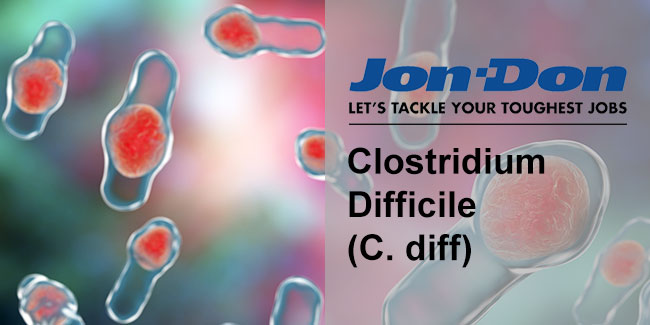
Clostridium Difficile (C. diff)
Clostridium difficile is a spore-forming, Gram-positive anaerobic bacillus that produces two toxins which damage intestinal cells and cause inflammation in the gut, resulting in mild to severe diarrhea, but can lead to severe dehydration and hospitalization. More than 500,000 people are infected each year, resulting in approximately 15,000 deaths.
While C.diff is very contagious, the bacteria does not go airborne, instead it is spread by a person touching a contaminated surface or ingesting spores. C. difficile spores are difficult to eliminate and are not destroyed by alcohol-based hand sanitizers.
Preventing C. diff Infections
The following precautions can help keep you -- and others -- safe:
Wash your hands with soap and water frequently. Do not rely on alcohol-based hand sanitizers as they do not destroy C. diff spores.
Clean surfaces and disinfect in bathrooms and kitchens regularly with chlorine bleach-based products (Make sure they have a C.diff claim).
Wash soiled clothing with detergent and chlorine bleach.
Disinfecting and cleaning areas affected with C. diff
- Use only disposable towels
- Wear full PPE (mask, gloves, coveralls)
- Frequently remove gloves and wash hands
- Clean all hard surfaces with a disinfectant with a c. diffclaim (chlorine-based).
- Note: There are very few products that have an actual C. diff claim EPA’s Registered Antimicrobial Products Effective Against Clostridum difficle Spores



